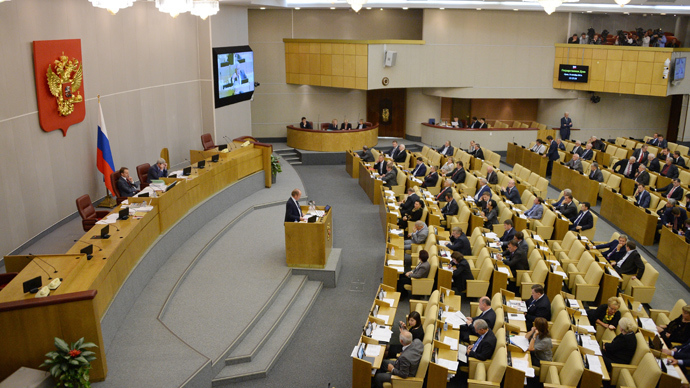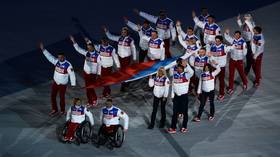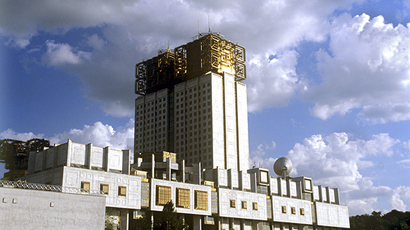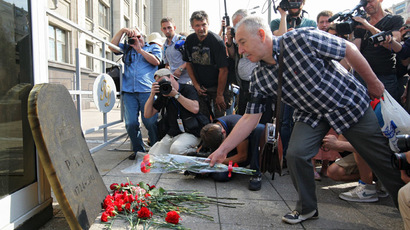Academy of Sciences reform bill passes Lower House

The State Duma has given its final approval to the controversial document that deprives Russia’s Academy of Sciences of most of its property and management rights and transfers them to a newly created government agency.
The bill was passed by the 331 against 107 voting with one abstention.
As the MPs discussed the bill in the second and third reading about 100 people gathered outside the State Duma in central Moscow protesting against the reform that, in their words, would harm Russian science by giving state bureaucrats power over researchers. Participants claimed that there were seven academicians among them.
The main provision of the document is that the three major Russian academies should be merged into one with a single managing body, and also that the right to manage the academic budget and property is transferred to a special government agency. The same agency will also manage research institutes and other scientific entities. After heated discussions the MPs agreed to make an exception for regional branches of the Russian Academy of Sciences that will still report to the mother organization.
The protests have been taking place regularly since the bill was initially submitted by the government in early July this year, and the Communist Party caucus in the Lower House even threatened the government with a no-confidence vote.
A group of researchers started looking for signs of plagiarism in parliamentarians’ research papers and promised to contest the politicians’ science degrees if they do not reject the bill. The president of the Russian Academy of Sciences, Vladimir Fortov, asked Vladimir Putin to postpone the reform. The president refused, saying that it was too late to stop the process, but promised that lawmakers would consider the amendments proposed by the scientific community.
At some point the State Duma backtracked, returning the document into the second reading but passed it nevertheless, albeit with some corrections.
Before the final voting, the head of the Lower House Education Committee, MP Vyacheslav Nikonov (United Russia) said that the State Duma had completed its work on the document and after it is signed into force by the Upper House and the President the scientists would have to start working.
Nikonov said the initial draft of the law could not stand any
criticism and the State Duma had kept the promise ‘to render the
bill harmless’, adding that all suggestions submitted by the
Academy of Sciences and supported by the President had been
included in the bill.














